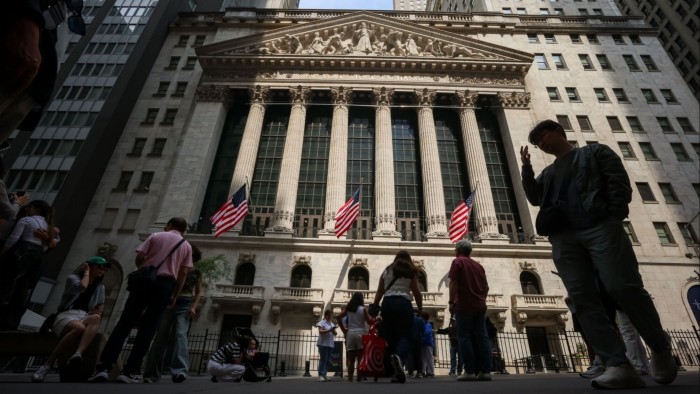[ad_1]
Unlock the Editor’s Digest for free
Roula Khalaf, Editor of the FT, selects her favourite stories in this weekly newsletter.
The writer is senior adviser at Engine AI and Investa, and former chief global equity strategist at Citigroup
Over a career in equity research, I saw all sorts of theories used to predict moves in share prices. Most were ineffective. Maybe that’s why I developed a begrudging respect for my colleagues in the commodity markets and their focus on a concept familiar to any undergraduate economist — demand versus supply.
While technical pricing issues such as the timing of delivery of a commodity do come into play, the sector watchers mostly keep it simple. If demand exceeds supply, they forecast rising commodity prices. If supply exceeds demand, they forecast falls. In turn, these price moves send signals back to the market. Higher prices decrease demand and create investment in new supply. This eventually pushes them back down again. The opposite happens if prices fall.
This feedback mechanism built a natural mean-reversion mentality into commodity markets. Hence one of their favourite sayings: “there’s nothing more bearish for the oil price than a bullish oil price”.
Supply issues are haunting the government bond markets. Investors fear the glut of new government bonds needed to fund vote-winning promises of higher spending and/or tax cuts. According to Sifma, the US government has issued $12.2tn of securities into the Treasury market in 2025. At the same time, there is rising uncertainty about the demand for these bonds. Overseas investors may be looking to reduce their heavy US Treasury bond positions. The Federal Reserve, which had been a big buyer via its quantitative easing programme to support the economy, is now more inclined to be a seller.
Rising supply, falling demand. It’s hardly surprising that US Treasury bonds have been under pressure. That follows the usual script. But the crucial feedback mechanism is missing. Low prices have not limited supply. Instead, governments seem inclined to issue more bonds to finance their populist policies. For now, commodity-style mean-reversion of bond prices seems unlikely. Yields may keep rising until they find a level where investors refuse to finance such fiscal profligacy. No one knows what that level is.
As for equities, there’s always been scrutiny of investor demand in some areas. Which exchange traded funds or mutual funds are seeing the biggest inflows? Which stocks might benefit from this demand? But there’s less analysis of equity supply. Such neglect would be intolerable to my commodity colleagues. Instead, they would be asking how many new shares are being supplied via initial public offerings or equity raisings? How many are being redeemed via share buybacks or acquisitions of listed companies?
I made a career out of monitoring these dynamics. They helped me predict the onset of de-equitisation, the inevitable shift towards shrinking public equity markets given the drop in capital allocations the asset class has seen over the past 25 years. It also gives me a different perspective on the current state of stock markets. Investors are understandably worried about slowing economies, trade tensions and higher bond yields. But in defiance of this, most global indices are up around all-time highs.
Recommended
Maybe we are overthinking things. Perhaps this market resilience simply reflects that the supply of new equities remains very subdued, and the redemption of old equities continues apace. For example, Renaissance Capital estimates just $14.4bn has been raised in US IPOs this year. To put that in context, Goldman Sachs expects US share buybacks to hit $1tn for 2025. Apple is hoping to buy back up to $100bn of its stock this year. Even with the Nasdaq around all-time highs, the net supply of technology company public equity is shrinking. This is so different from the late 1990s tech boom when issuance was booming.
My supply-side focus also gives me a different perspective on the UK equity market. IPOs are being pulled, public companies taken over and listings shifted to the US. Given all this gloom, you might think that the country’s equities are in a multiyear bear market. In fact, the FTSE 100 is hitting all-time highs. To me, UK de-equitisation reflects a healthy supply-side response to a long-term contraction in demand for domestic equities. If the government does adopt policies that reignite demand, I would expect the UK indices to rise further.
We have ended up in a strange place. Government bond prices are at multiyear lows but supply is increasing. Equity indices are at multiyear highs but supply is decreasing. “Buy what’s scarce” was another favourite among my commodity colleagues. Right now, that’s equities not bonds.
[ad_2]
Source link


